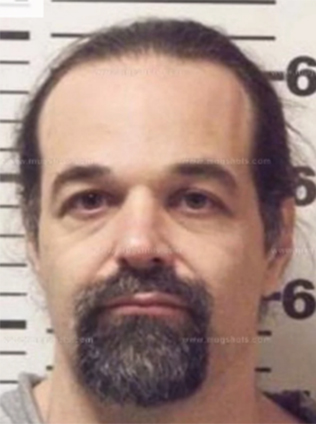AUGUSTA — A convicted murderer who, while on a two-hour pass to leave the grounds of Riverview Psychiatric Center unsupervised in 2018 allegedly confronted his father and brother with a knife, asked a judge to release him from state custody and allow him to leave Riverview for good.
State officials, meanwhile, not only opposed Mark Ian Gessner’s request to be released from state custody, they also moved to revoke all his privileges to leave Riverview, even while supervised.
Gessner was convicted in the 1994 murder of Melvin Henderson, a florist in Bath, and was sentenced to 30 years in prison. While in prison, Gessner was found not criminally responsible by reason of insanity for aggravated assault and trafficking in prison contraband in 2011, and committed to the custody of the Commissioner of Health and Human Services.
He completed his murder sentence in 2016, after getting credit for “good time,” allowing him to be released after serving some 22 years. However, because he had been committed to state custody for the charges made against him in prison, rather than being a free man in 2016 when he left prison, he instead was committed as a forensic patient to Riverview Psychiatric Center. A forensic patient is someone who’s been involved with the criminal justice system or committed a crime but found not responsible for their actions.
The Maine Supreme Court in 2017 upheld a lower court’s ruling that Gessner should not be released into the community.
At Riverview, Gessner twice petitioned the courts to be allowed to leave the state mental health facility with patient privileges in order to take part in community activities. A 2016 request was denied, but in 2018 he was granted up to two hours a day of unsupervised time as long as it was within 10 miles of Augusta.
On Oct. 21, 2018, Gessner, on a two-hour community pass, left Riverview, saying he planned to go to Hallowell according to a Riverview worker who testified in court Friday.
Instead, he went to the Bath home of his father, Herbert, where he confronted him and his brother Luke, taking a knife with a five-inch-long blade out of his backpack before Luke rushed at him and pinned his arms against a vehicle. The two struggled and at one point, Luke testified in court Friday, Mark Gessner pointed the knife at Luke’s chest.
“He pointed it into my chest and he says ‘I don’t want to hurt you but I will if I have to,'” an emotional Luke Gessner said. “I told him to go ahead. Because I didn’t think he’d do it. We were struggling back and forth; he broke free from me. That’s when the police showed up and I heard them say ‘put it down.’ I said, ‘Thank God,’ and put my hands up.”
Mark Gessner, 55, was arrested following that 2018 incident and charged with two counts of criminal threatening, but one count was dismissed and he was acquitted of the second charge following a trial.
He said Friday he didn’t threaten to stab his brother or father, but acknowledged he did have a knife in his hand.
He said he’s not mentally ill, delusional or psychotic and state officials who evaluated him and determined he was found not criminally responsible by reason of insanity following the 2011 charges in prison were lying.
He said if he’s edgy and irritable it’s because he’s been incarcerated for so long and is now housed with people with mental health disorders. He said he doesn’t need to be on any medication, and he is not on any now.
“What I have your honor is an amount of PTSD, and that’s only after almost 22 years of being incarcerated,” Gessner said to Superior Court Justice Robert Mullen. “My environment is hostile and not predictable. So my mood is not predictable, because of the people around me. I have no intention of harming myself. I have no intention of criminal conduct.”
Gessner said he should be released from state custody and be allowed to leave Riverview.
State mental health officials, meanwhile, filed a motion to have all of Gessner’s off-campus privileges at Riverview revoked, and that he not be allowed to leave the facility even while supervised.
Assistant District Attorney Carie James said the state sought to have his privileges revoked. If he wishes to submit a new petition to have some privileges restored, he may do so in the future.
Mullen said he would review the case file and issue his decision on the contradictory requests in writing as soon as possible.
Dr. Debra Baeder, chief forensic psychologist for the State Forensic Service, testified that Gessner’s diagnosis includes that he has anti-social personality traits while a physician’s assistant at Riverview said Gessner had a complex history of substance abuse and paranoia.
Gessner was brought into court by two Capitol Police officers, in handcuffs shackled to a chain around his waist.
“Is this necessary, I don’t mean to be pugnacious but is this necessary?” Gessner said to Mullen, gesturing with his restrained hands.
After conferring with lawyers for both sides and court security officers in his chambers, Mullen said he did, indeed, feel it was necessary that Gessner be restrained in court.
Evan Fisher, an assistant district attorney, said Capitol Police provided him with a statement from a witness who said, on Jan. 15, that Gessner had told her he planned to “make a scene” during the court hearing so he would be sent to another psychiatric center or to Maine State Prison.
Send questions/comments to the editors.



